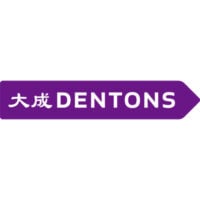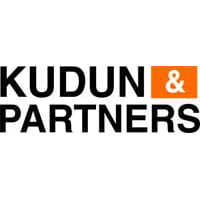
China 2019

General counsel and vice president | United Energy Group





Leslie Weihua Zhang
General counsel and vice president | United Energy Group
What are the most important transactions and litigations that you have been involved in during the last two years? United Energy Group’s (UEG) US$200m acquisition of OMV Pakistan assets (OMV) in 2018 and UEG’s US$1bn acquisition of Kuwait Energy Group (KEC) in 2019 are the most important transactions I have been involved in during the last two years. The OMV transaction was a typical “bolt-on” transaction for UEG because UEG further enhanced its dominant position in Pakistan’s oil and gas industry by completing the deal. After completion of the acquisition of OMV Pakistan assets, UEG continues to be the largest foreign oil and gas company in Pakistan. The KEC transaction is a transformative transaction for UEG because it will triple the current production within five years. The transaction was quite complex and it was completed under time pressure and a very competitive bidding context. It was also one of the largest overseas transactions among Chinese companies between 2018 and 2019. UEG is currently involved in two international arbitrations. The first one is an arbitration case involving DNO and Yemen’s government (Yemen arbitration) concerning the validity of its relinquishment of Block 43 in Yemen. The second one is an arbitration case involving Dragon Oil as the claimant (Dragon arbitration) concerning a transfer of 12.86% participating interest in the Block 9 exploration, development and production service contract. The Yemen arbitration is held in the International Chamber of Commerce (ICC) in Paris and the Dragon arbitration is held in ICC in London. Also, UEG is currently actively seeking to enforce a winning arbitration award with an amount of US$150m against Ukranafta, a Ukraine state company. As a member of United Energy Group’s executive committee, what do you feel is the main benefit to the business in having a lawyer at this level of the organisational structure? The legal executive is closely involved in the decision-making process of the company and the board feels more comfortable when they need to make an important business decision. Also the legal team will have very strong support from the executive level to make sure the company operates in a healthy way. In what ways do you see the in-house legal role evolving in your region over the next few years? In-house legal teams will play a more important role in the context that more Chinese companies operate globally. More general counsel from Chinese companies will become members of company executive committees over the next few years, which was rarely seen a few years ago. Also, the “in-house movement” is happening in China. Not only will in-house team roles become more important, in-house legal teams will also take care of more work which was previously undertaken by external law firms. And in-house legal teams will put more emphasis on M&A deals, global compliance programmes, IP issues, cross border litigations and arbitrations, cyber-security and data protection. Finally, in-house teams will become more diversified and international. Previously, in-house legal teams of Chinese companies were not very diversified from an international perspective. Nowadays and over the next few years, I expect to see more international legal talents to join the legal teams of Chinese companies. What have been the major external trends that have impacted your work over the past two years? The low oil price environment affected the petroleum industry a lot. When I consider an M&A transaction, I needed to pay attention to the potential downsides of low oil prices. Therefore, I used different mechanisms such as “earn-out” and “assets swaps” in the transactions to control “overpayment risk” in the transaction. The low oil price environment also required the legal team to do work in an efficient and cost cautious way. Meanwhile, partners’ default risk was elevated under the low oil price context. The legal team had to deal with the situation arising out of the bankruptcy and insolvency of the partners. The quick change of the compliance environment in the petroleum industry exposed UEG more than ever. The host governments enhanced their supervision of environment law enforcement, the local labour law enforcement, local content requirements and decommissioning obligations in the past two years. Therefore, the legal team attached more importance on the compliance work and dealt more with compliance litigation and disputes. The One Belt One Road (OBOR) initiative enabled UEG to do more deals in OBOR countries. The initiative also helped UEG raise funds for its M&A and operational financing from financial institutions. The deteriorating US-China relationship also hindered UEG’s decision to invest in the petroleum industry in the US.
FOCUS ON… Chinese in-house counsel will become more important within the corporate hierarchy I personally witnessed the changing position
of in-house counsel in Chinese companies. Previously, most Chinese companies did not
put much importance on the in-house legal
team when they operated mostly domestically. That was especially apparent when state owned enterprises (SOEs) did not regard the legal team rightly until they began overseas operations.
After Chinese companies began their global operations, they quickly realised the importance
of having a strong internal legal team when
they encountered various legal risks, pitfalls
and disputes overseas. In the outside world, everything is totally different compared with the domestic environment. Outbound M&As, international arbitrations and litigations, and
global operations have required the legal team to transform in a very quick way. Several years ago, it was rarely seen that a general counsel in a Chinese company is a member of the executive committee. But nowadays, this can be seen in a lot of Chinese companies. It even became a mandatory requirement from the State-Owned Assets Supervision and Administration that every SOE should have a general counsel serving in its management team and the position of general counsel shall not be inferior to the CFO. The legal teams also expanded rapidly with Chinese companies further expanding their footprints globally. Just as the in-house movement occurred
once in the US, China is currently undergoing
the same movement. Chinese companies are beginning to emphasise the importance of
having an international legal team, a modern
legal team structure, higher positions for general counsel, more legal expenditures and legal team involvement in the business decision process.
In the foreseeable future, I can firmly assert that
in-house counsel in China will become more important within the corporation hierarchy.